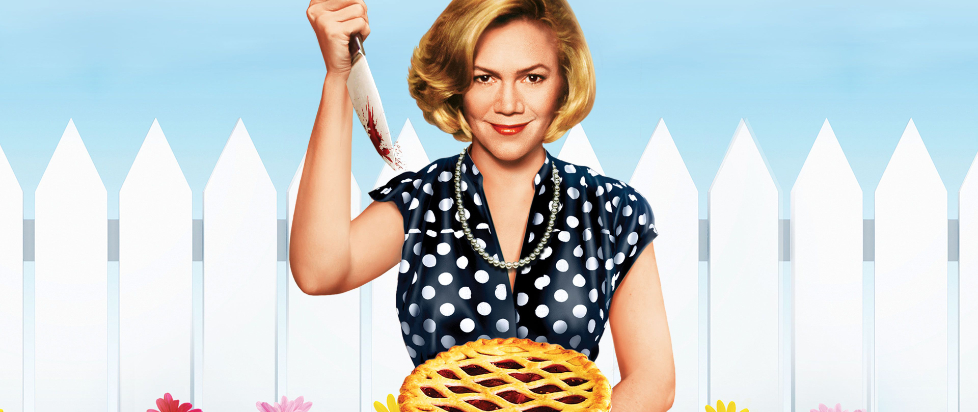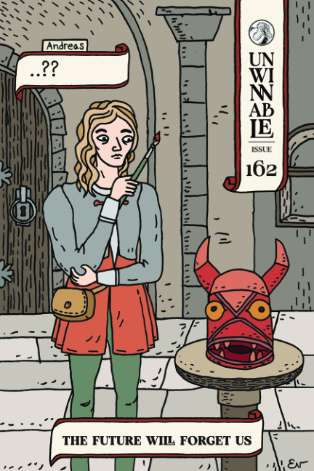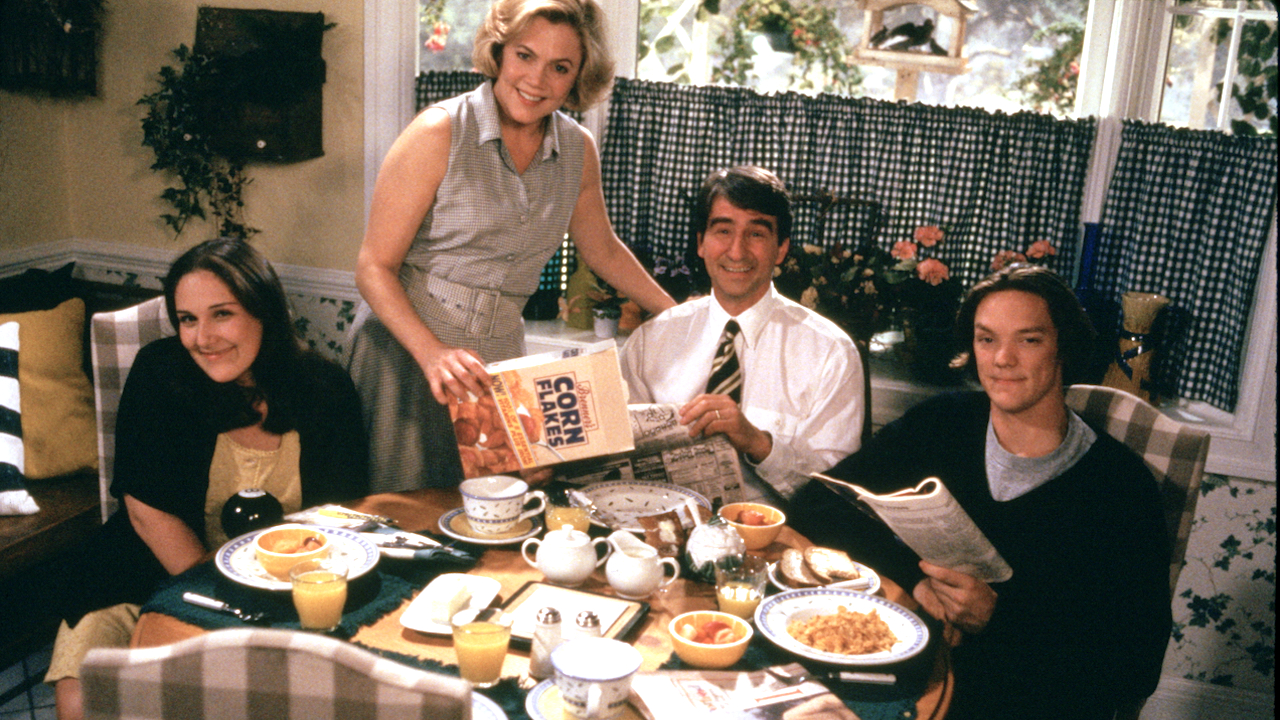
1994

This column is a reprint from Unwinnable Monthly #162. If you like what you see, grab the magazine for less than ten dollars, or subscribe and get all future magazines for half price.
———
Kcab ti nur.
———
Once again welcome back to the tour! Today we’re heading into the year of John Wayne Gacy’s execution and Jeffrey Dahmer’s baptism and writing about the John Waters’ suburban comedy Serial Mom.
Mom: Do you think I need a lawyer?
Chip: You need an agent.
There has been a resurgence of online fantasizing about the position of the housewife and more traditional Western family structures. And there’s a logic to it. The world is increasingly overwhelming, as social media throws pre-existing violences in our face more and more, then new ones are born and burned into our brains. On top of that, there’s the specific gendered element of how a neoliberal capitalism that has claimed to liberate women in the West, just has them doing double duty of operating in the workplace and still being expected to look after the home. In response, influencers, podcasters, commentators and other financially interested parties present a bourgeois fantasy to women disenchanted with the drudgery of modern life and obfuscate its dark side. Not least, the way that the position of the housewife is so heavily financially dependent on the funds of the man of the house and the potential for abuse in that dynamic.
The opening of Serial Mom reflects this fantasia to a T. Mom Beverly Sutphin (Kathleen Turner) presides over a perfectly clean house with two unique but ultimately sweet and harmless kids, and a loving breadwinning husband. She cooks the family a lovely breakfast and the kids bicker a little but never in a way that suggests a more serious break in the broader structure. And then during this meal, a fly enters the room which she obsesses over and then eventually manages to kill, with a larger than you’d expect blood splatter in the middle of the table. She then snaps back to normal, asking if anyone wants scrambled eggs. However, in that moment, one of the central themes of the movie is set – the escapist suburban fantasy is written in blood.

Lily-white middle-class suburbs do not appear out of nowhere. They have to be maintained through continuous efforts, this can be seen in the redlining and gerrymandering to ensure that political power and resources are spread in a way that favors the interests of the white bourgeoise over anyone else in the area. On the sharper end of the stick, rent rises, anti-homeless laws and policies like zero-tolerance policing ensure that “undesirables” are kept out of these areas and forced out of public life all together to maintain the idyllic aesthetics. Then of course there’s the broader realities of the global economy succinctly expressed by Françoise Vergès – “The comfortable life of bourgeois women around the world is possible because millions of exploited and racialized women maintain this comfort”. At every level, the perfect suburb relies on disguising the harm it causes.
Waters’ takes this inherent violence brimming beneath the surface of this position and makes it manifest. She (thankfully) does not take out her bloodthirst on homeless people or POC, but instead in the petty grievances that she maintains throughout the film. Some of her victims threatened to reveal her position as a killer, but most met their end for being uncouth, like wearing white shoes after Labor Day. It’s ridiculous, it’s funny and it’s deeply John Waters. Even the methods of her murder are ridiculously kitsch, beating a lady to death with a leg of lamb and killing someone else with fabric scissors. Contrary to what the fantasy sells, the Home cannot be separated from the blood shed required to maintain it.
What also makes this film very prescient is how it shows the titular Mom’s fame after she was revealed to be a murderer. In one particular moment, a fan exclaims that sometimes she feels like a Serial Mom. It’s obviously very silly but it very much reflects the way that true crime is consumed nearly 20 years later. Podcasts like My Favorite Murder in particular reflect a particular position where bourgeoise white women can flippantly project themselves into these narratives of violence, either as perpetrator or victim. The reality is of course that the majority of women pushed into involvement with violent crime from any angle are precarious women like sex workers and undocumented women, not podcasters. But it’s extremely profitable for both podcasters and self-defense merchants to obfuscate that reality and lean into a fake relatability.
The fantasy of suburbia is a fraught one built on invisibilizing the bloodletting which created it in the first place. There is no freedom to be found in dreams sold by charlatans. The only path to liberation is to break down the white picket fences and use them to make something worth fighting for.
———
Oluwatayo Adewole is a writer, critic and performer. You can find her Twitter ramblings @naijaprince21, his poetry @tayowrites on Instagram and their performances across London.




